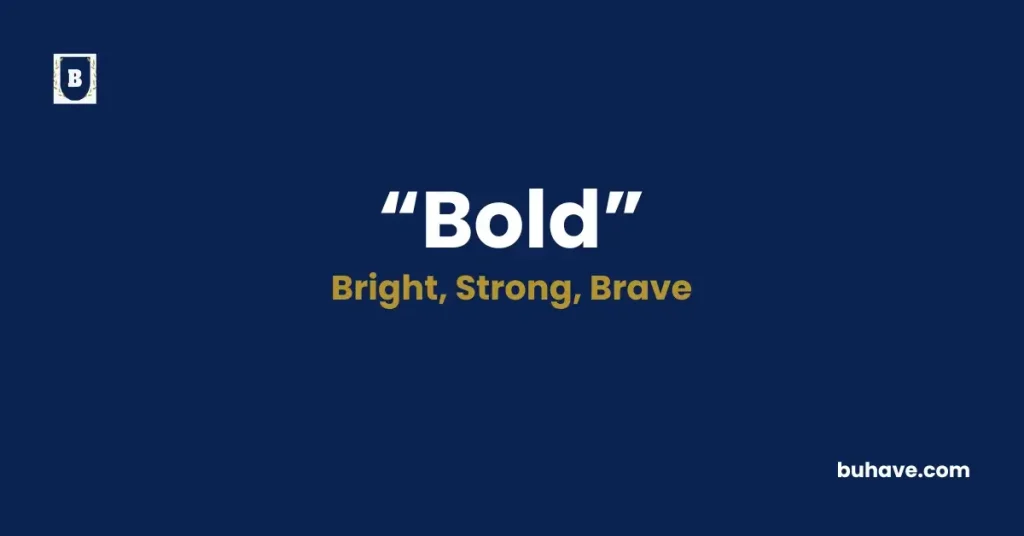The word ‘Bold’ (Adjective) describes showing courage, confidence, and a willingness to take risks. In this guide, you’ll learn the full definition, synonyms, antonyms, etymology, and real-life examples of how to use ‘Bold’ correctly in sentences.
Bold Explained in Depth
A complete and detailed guide to the word ‘Bold’ including meaning, definition, examples, etymology, synonyms, and antonyms.
Meanings of Bold
Bold means having the courage to take risks and face challenges with confidence. It describes a person who is not afraid to act or speak out, often showing determination and strong will.
Bold actions stand out because they break norms, defy expectations, or challenge obstacles head-on.
Definition
Bold is an adjective that means showing courage and a willingness to take risks. It conveys confidence, assertiveness, and often a readiness to challenge the status quo.
A bold person acts without fear and with a sense of daring that others might shy away from.
Etymology
The word “bold” comes from the Old English “beald” or “bald,” meaning “brave, confident, or strong.” Its roots trace back to Proto-Germanic *balþaz, meaning “bold, brave.” Over time, “bold” evolved into its modern form, retaining the sense of confidence and fearlessness in facing challenges.
Example Sentences
- She made a bold decision to change careers, even though it was risky.
- His bold speech inspired the crowd to take action.
- The artist’s use of bold colors made the painting stand out.
Bold Synonyms
- Brave
- Courageous
- Fearless
- Daring
- Confident
- Audacious
- Intrepid
- Valiant
- Assertive
- Adventurous
Bold Antonyms
- Timid
- Shy
- Fearful
- Hesitant
- Cautious
- Unassertive
- Reserved
- Apprehensive
- Reluctant
- Reticent
FAQs about Bold
Here are some frequently asked questions (FAQs) about the word “Bold”
1. What does “bold” actually mean?
“Bold” means showing courage and confidence, often by taking risks or standing up for oneself or others. It’s about being assertive and not easily intimidated.
2. Can “bold” describe actions or behavior?
Yes! “Bold” can describe not just people but also actions, choices, or even colors—anything that stands out or challenges the norm.
3. Is “bold” always positive?
Generally, yes, though it can sometimes suggest recklessness if the action is too risky or defies social norms in a disruptive way.
4. How is “bold” different from “brave”?
“Bold” is about taking risks confidently, while “brave” is about facing fears and dangers with courage. Both overlap, but “bold” leans more toward assertiveness and daring.
5. Can “bold” be used in both formal and informal settings?
Absolutely! “Bold” is a versatile word that can fit well in both everyday conversations and more formal writing or speeches.

















